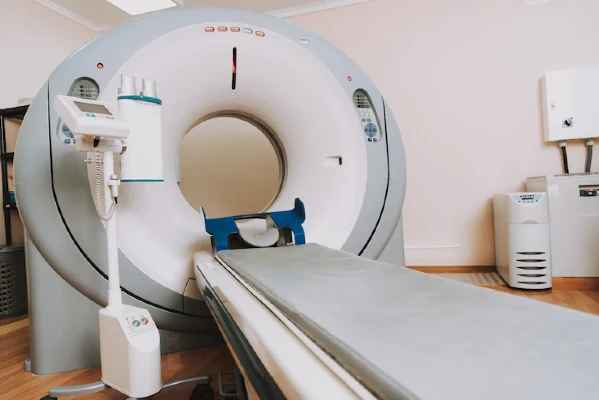MRI Scan: Process, Procedure, Need, When to get Tested

Medically Reviewed By
Dr Divya Rohra
Written By Komal Daryani
on May 10, 2022
Last Edit Made By Komal Daryani
on Jan 20, 2025

What Is A Magnetic Resonance Imaging (MRI) Scan?
An MRI scan, or magnetic resonance imaging scan, is diagnostic equipment that is used to scan the internal organs to detect any abnormality. The entire procedure of MRI scanning takes 20 minutes to 90 minutes, depending on the size or area.
An MRI is a two-sided open-ended cylinder that runs over the body part being scanned in a limited range of distance. It is operated by a computer that is kept in a distant room to avoid magnetic field effects on it. While scanning an old patient or a child’s concerning area or organ, sometimes one person from the family has to accompany them. In this process, receivers of the MRI scanner pick up the signals from the body to create a clear image on the screen.
How An MRI Scanner Works?
The operation of an MRI scan is based on powerful magnetic fields acting on soft tissues and cells, which send an echo in response to radio waves from the MRI scanner, and thus images are created on the computer screen. An MRI scanner is capable of taking images of the organ from any angle.
When Is An MRI Scan Needed?
A MRI scan diagnoses or detects soft tissue-related medical conditions such as:
- Damaged ligaments, joint disease, or injury
- Soft tissue injuries and spinal injuries
- For cancer or tumor
- Internal organ disease or injury, including the heart, stomach, and brain
It also helps a doctor in assessing and in the planning of appropriate treatment for the patient.
An MRI scan can produce clear and high-resolution images of soft tissues but not of the bones. That is why an X-ray is needed for the bones rather than an MRI scan.
An MRI scanner is an expensive piece of equipment and is thus often found at specialized high-tech labs. Hence, depending on the medical conditions,computed tomography (CT), X-ray, ultrasound, biopsy, and blood tests may be recommended in place of the MRI scan.
About Whole MRI Scan Procedure
Step1: Before Scan Process:
- Before the start of the MRI scan, the patient can continue his or her daily routine as usual, including eating, drinking, or taking any medication, unless advised of any restrictions. But sometimes at least a 4-hour gap is given if required, or asked to drink more water depending on the medical condition.
- A MRI scan is generally a safe procedure, but in some conditions, such as during pregnancy (1st term) or breastfeeding, or if someone has a metal implant in the body, it is possible that it won’t be recommended.
- Since an MRI scan works on a strong magnetic field, any metal object should be removed from the body, including watches, jewelry, dentures, hearing aids, heart valves (prosthetic), pacemakers, IUD, and many more such metallic things.
- Anything metallic can be harmful during an MRI scan because the scan uses a giant magnet. So be careful of some concerns, including people with a history of hyperglycemia or diabetes, implanted insulin pumps, cochlear implants, or bullet wounds. Take care while going through the MRI scan.
- There can be an extensive list for the safety of the patients since any ignorance could lead to problems with the scan and their health as well.
- A patient may be told to wear a gown because a hospital gown doesn’t have zips, belts, or metallic buttons, which makes it much better for an MRI scan.
Step2: During Scan Process:
- During the whole scanning procedure, you are asked to hold your breath for a short time and to lie down in a still position to avoid any blurring of the image. Now you are allowed to move when the scanning is over.
Step3: After Scan Process:
- There is no need for a hospital stay during MRI scanning; it is usually done on an outpatient basis. Normal activity can be resumed after the completion of the scan.
- Because sedatives may be administered during MRI scanning for some illnesses if required, do not drive or operate heavy machinery for 24 hours if you have been given a sedative during the MRI scan.
- Finally, a radiologist (a specially trained doctor in scanning and X-ray techniques, among others), studies the MRI images, interprets the results, and sends the report to the concerned specialist. A MRI scan report can take at least 2 days, but sometimes a report can be available immediately if needed urgently, depending on the situation.
- After completion of the MRI, a radiographer can ask for some more images again if the quality of the images taken is not clear. There is no such thing as a side effect of MRI since it is a painless and non-invasive procedure. Follow all the instructions as directed by the physician.
About Using Contrast Dye In An MRI Scan
Sometimes, during an MRI scan, contrast dye is used to see several blood vessels and tissue more clearly. Such contrast dyes can have minor effects like skin rashes, headaches, hives, feeling sick, shortness of breath, itching, and dizziness, which can be mild and don’t last long. People with a history of allergies, kidney disease, and blot clotting issues can be restricted from MRI scanning or scanned with all the precautions.
Things To Considered In MRI Scan
Things to consider before the MRI scan are:
- Metals, including internal and externally wearable metallic things, metallic pins, or metallic medication pumps, as described above.
- Pregnancy: Magnetic radiation can affect the fetus during pregnancy.
- Claustrophobia: Feeling anxious and unsettled during an MRI, which can be resolved by relaxation medication. Such medication can also be given to children to keep them calm during an MRI scan if they feel anxiety.
- Fasting: It is required for an abdominal or pelvic scan, but not in all cases.
Where To Get An MRI Scan?
Once you are well aware of all the aspects of MRI scanning, it becomes less frightening and risk-free. A MRI scan offers a valuable insight into the organ of concern. It becomes easy for a doctor to understand what is happening inside the body or organ during a diseased state. MRI scanning is an essential part of diagnosis since it also provides information about the progress of the given treatment. If your doctor has recommended an MRI scan, don’t wait or don’t hesitate to book an appointment at Redcliffe Labs near you. Here, all the equipment is of high quality and gives accurate, clear images or results.
Call the nearest "Redcliffe Labs" to schedule a test, such as an MRI scan, or book an appointment online at www.redcliffelabs.com.Here, the friendly customer care team is always available to help the customers and patients.
Disclaimer:
The blog content has been posted as a piece of information and awareness only. The content provided in this blog, or in any linked materials, are not proposed and should not be taken as medical advice. Redcliffe Labs strongly recommends users to consult with their health care providers to make any medical or health-related decision.



